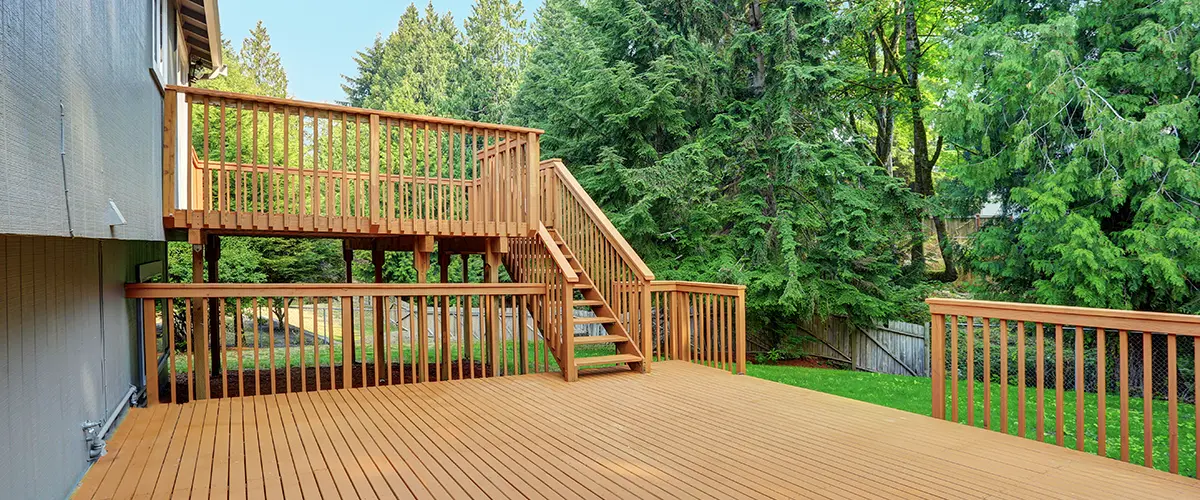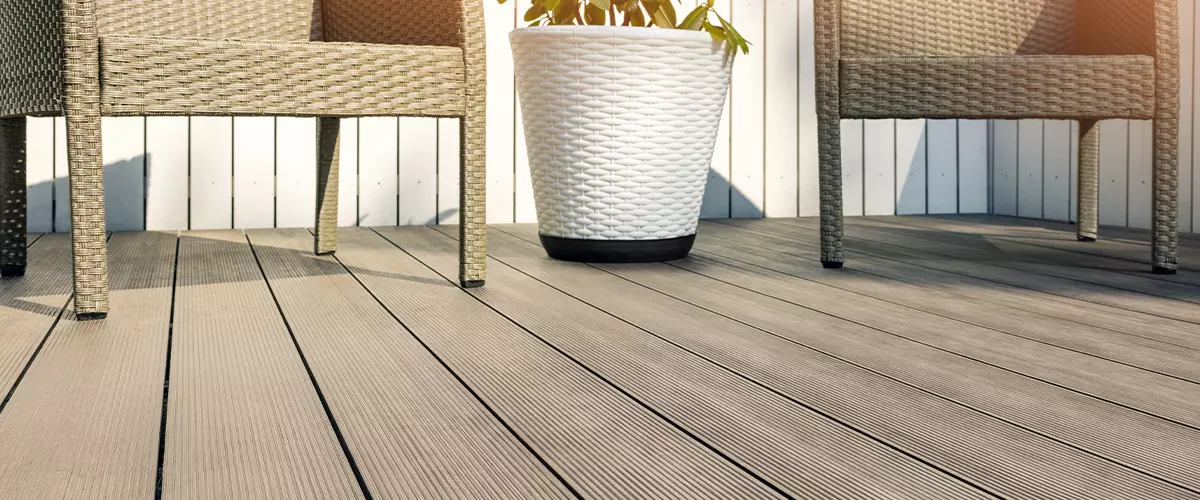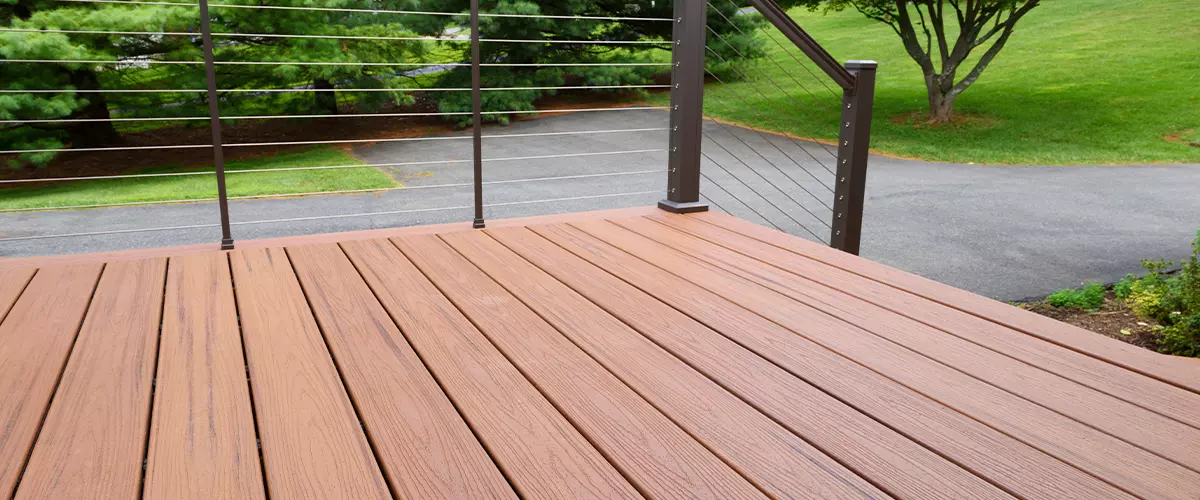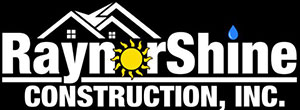When it comes to the “wood vs composite deck” debate, many North Carolina homeowners find themselves in a quandary. The type of deck you choose plays a crucial role not just in the overall look and feel of your outdoor space, but also in the upkeep, durability, and even the value of your home.
In this article, we’ll delve into the pros and cons of both wood and composite decks, considering factors such as cost, durability, aesthetics, and the local North Carolina climate. Our aim is to help you make an informed decision about the most suitable deck for your home.

Wood Decks: A Natural, Timeless Option
Pros of Wood Decks
Wood decks offer a classic, natural aesthetic that can be hard to replicate. The rich, warm tones and unique grain patterns of wood can be truly breathtaking, enhancing the beauty of your outdoor space. In terms of building, wood decks provide more flexibility due to their ease of cutting and shaping, allowing for a wide range of custom designs.
Cons of Wood Decks
Average Price and Durability
Climate Considerations
Types of Wood and Stain
Given the local climate and conditions, here are the top choices for wood decks in North Carolina:
- Pressure-Treated Pine: This is a popular choice due to its affordability and availability. Pine is resistant to decay and insects, thanks to the pressure-treatment process. However, it’s essential to seal and stain it regularly for longevity.
- Cedar: Cedar is another excellent option. It’s naturally resistant to moisture, decay, and insect damage. Plus, it offers a beautiful, rich color that many homeowners love. It’s slightly more expensive than pine, but its durability and aesthetic appeal make it a worthy investment.
- Ipe: This exotic hardwood known for its extreme hardness and durability makes it an ideal choice for a high-traffic deck. Ipe is resistant to rot, decay, and insects, even without treatment. While more expensive upfront, its longevity can make it cost-effective in the long run.
- Teak: Teak is another premium hardwood option. It’s naturally water-resistant and incredibly durable, making it well-suited to North Carolina’s climate. Teak’s unique golden-brown color can add a luxurious touch to your backyard.
- Redwood: While not as common in North Carolina, Redwood is a viable option for those willing to invest in high-quality wood. It is naturally resistant to decay and insects and offers a unique, vibrant color. Regular maintenance will help in maintaining Redwood’s exceptional beauty and longevity.
Caring for Wood Decks
Maintaining a wood deck is not merely about preserving its appearance; it’s about ensuring its longevity. Here are some key tips for North Carolina homeowners to keep their wood decks in top shape:
- Regular Cleaning: Remove debris from between deck boards using a putty knife. Small particles and leaves can retain moisture and lead to mold and mildew. Clean the deck annually with a wood deck cleaning solution and a stiff brush.
- Sealing and Staining: Apply a water-repellent seal or stain every two years. This helps the wood resist water and UV damage, keeping the deck looking beautiful and extending its life.
- Inspect for Damage: Regularly inspect your deck for damage such as loose boards, popped nails, or rot. Address these issues promptly to prevent further deterioration.
- Avoid Power Washing: While power washing can be quick and effective, it can also damage the wood. Instead, consider using a garden hose with a hard stream setting.
- Trim Nearby Plants: Overhanging plants can drop leaves onto the deck and create damp spots that encourage algae, mold, or mildew. Regularly trim back plants to keep the deck clear.
- Ice Removal: Use calcium chloride-based ice melters or rock salt to remove ice from the deck in winter. Avoid using ice scrapers or shovels, which may damage the wood.
Where to Buy Decking Wood in Coats, North Carolina
Here are five local stores in Coats, North Carolina that sell decking wood:
- Coats Farm Supply: Offering a wide array of decking materials, Coats Farm Supply is a one-stop-shop for all your outdoor project needs. They carry a variety of woods, including pressure-treated pine and cedar, perfect for decking.
- Johnson’s Building Supply : Johnson’s Building Supply prides itself on its high-quality lumber selection. Whether you’re interested in pine, cedar, or even exotic hardwoods like Ipe, you’ll find it here.
- Bobbitt Lumber Co.: At Bobbitt Lumber Co., you can trust the quality of their wood. They stock a good range of decking wood, including popular choices such as pressure-treated pine and cedar.
- Marsh’s Lumber Yard: Marsh’s Lumber Yard is a family-run business with a focus on customer service. They offer a range of decking materials, with options for both budget shoppers and those looking for premium woods.
- Holmes Building Materials: Holmes Building Materials stocks a vast selection of decking materials, catering to all sorts of preferences. Whether you’re interested in traditional choices like pine or cedar or looking for something a little more unique like Teak or Redwood, they have you covered.

Composite Decks: A Low-Maintenance, Durable Alternative
Pros of Composite Decks
Composite decks, a mixture of wood fibers and plastic (recycled materials), are known for their durability and low maintenance. Unlike wood, they resist warping, cracking, and splintering, making them an ideal choice for North Carolina’s fluctuating weather. With a wide range of colors and styles available, they can mimic the look of various wood types, offering you aesthetic flexibility.
Cons of Composite Decks
Average Price and Durability
Climate Considerations
Composition and Stain
Caring for Composite Decks
Taking care of your composite deck doesn’t have to be hard work. Here are some tips for keeping your deck in top-notch condition:
- Regular Cleaning: You don’t need fancy cleaners for your composite deck. Warm, soapy water and a soft-bristle brush will do the trick for most messes. Clean your deck at least twice a year to keep it looking new and fresh.
- Tackle Stains Immediately: If you spill something on your deck, clean it up quickly to prevent staining. A simple solution of soap and water should handle most spills. For tougher stains, like oil or wine, use a deck cleaner that is specifically designed for composite material.
- Avoid Power Washing: Just like wooden decks, composite decks can also be damaged by power washing. If you must use a power washer, keep the pressure below 1300 psi and maintain at least a 12-inch distance from the deck surface.
- Watch Out for Mildew and Mold: Although composite decks are designed to resist moisture, they can still develop mildew or mold in the right conditions. If you notice any mold or mildew, remove it with a deck cleaner containing sodium hypochlorite.
- Ice Removal: In the winter, use calcium chloride or rock salt to remove ice from your deck. Avoid using sharp objects like ice scrapers or shovels that could potentially scratch or damage the deck surface.
- Keep it Dry: While composite decks resist water damage better than wood, it’s still a good idea to try and keep it as dry as possible. Make sure your deck has a slight slope for water runoff and ensure that your gutters and downspouts are clear and working properly.
Top Composite Deck Brands
- Trex – Known for its high-quality, eco-friendly composite decking.
- TimberTech – Offers a variety of composite decking options with excellent warranties.
- Fiberon – Provides a wide range of composite decking styles and colors.
| Wood Deck | Composite Deck | |
|---|---|---|
| Pros | Offers a natural, unique aesthetic and flexibility in design. | Durable, low maintenance and available in a variety of colors and styles. |
| Cons | Requires regular maintenance and susceptible to weathering, discoloration and potential warping. | Can be susceptible to staining, may fade over time and has a higher upfront cost. |
| Average Price | $15-$25 per sq. ft. for a pressure-treated pine deck. Hardwood decks are more expensive. | $30 - $45 per sq. ft., including installation. |
| Durability | Lifespan of 25-50 years with proper maintenance for hardwood decks. | Long lifespan of up to 25-30 years. |

Frequently Asked Questions About Wood Vs. Composite Deck
Rayn Or Shine, We've Got Your Deck Building Needs Covered!
In conclusion, when comparing wood vs composite decks, both have their unique strengths and potential downsides. However, considering the factors such as durability, maintenance, and North Carolina’s humid climate, composite decks emerge as the more practical option. They offer robust durability, lower maintenance needs, and a wide variety of aesthetic options.
At Raynorshine Construction, we are proud to specialize in the installation of both wood and composite decks. Our team of professionals brings a wealth of experience and rigorous attention to detail to every project, guaranteeing an end result that not only meets but exceeds your expectations. We are committed to helping you make the most of your outdoor living space.

Branson Raynor
Ready to take the next step? Click the button below to request your free quote or give us a call at (910) 985-8064. Let’s build your dream deck together.
